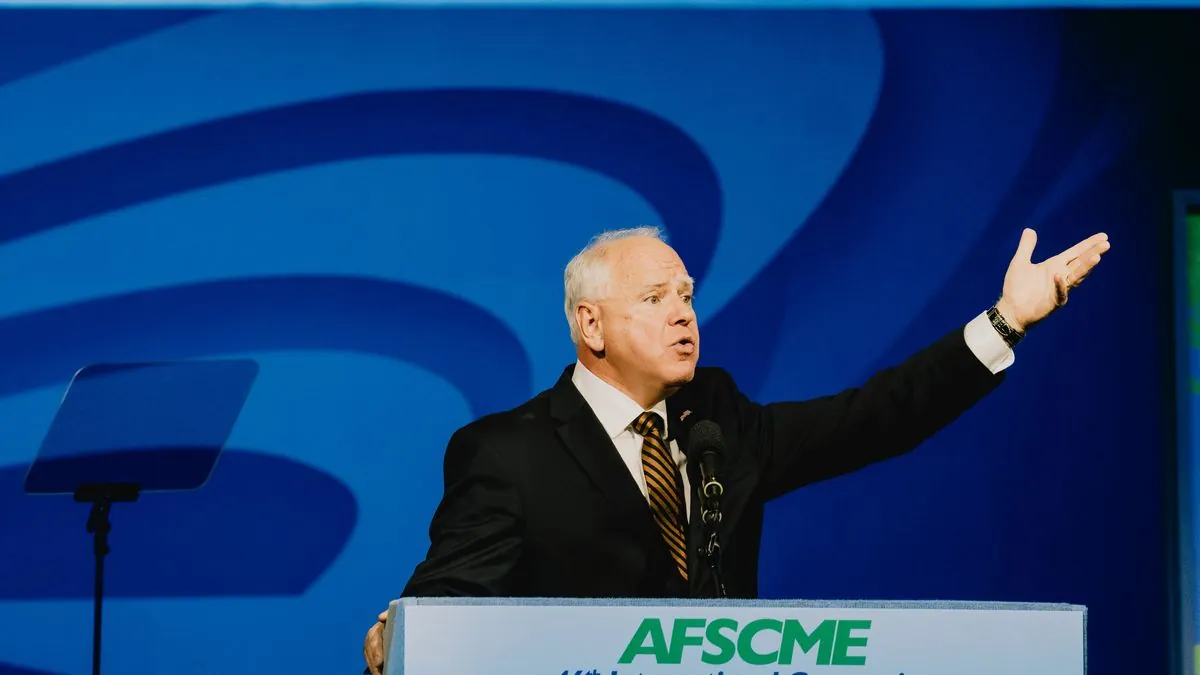In a significant development for the upcoming 2024 U.S. presidential election, JD Vance, the Republican vice-presidential nominee, has agreed to participate in a debate with his Democratic counterpart, Tim Walz, on October 1, 2024. This event, to be hosted by CBS News, marks a crucial milestone in the election process, setting the stage for at least one televised confrontation between the two candidates before the November general election.
The agreement came after Walz, the current governor of Minnesota, had already accepted the invitation from CBS News. During a fundraiser in Boston, Walz expressed his anticipation for the debate, highlighting the contrasting visions he and Vance hold for America's future.
Vice presidential debates have been a regular feature of U.S. presidential elections since 1976, providing voters with valuable insights into the candidates' positions and personalities. These events typically attract millions of viewers across the nation, potentially influencing public opinion and election outcomes.
Vance, not content with a single debate, has proposed an additional encounter. The Ohio senator challenged Walz to participate in a CNN-hosted debate on September 18, 2024. This move aligns with the Republican presidential candidate's strategy, as Vance noted that President Trump has already challenged Vice President Kamala Harris to three debates.
The push for multiple debates underscores the importance of these events in the electoral process. Since the first televised presidential debate between John F. Kennedy and Richard Nixon in 1960, these confrontations have become pivotal moments in American politics.
Both Vance and Walz bring unique perspectives to the vice-presidential race. Vance, an author and venture capitalist turned politician, represents Ohio, a key swing state in presidential elections. Walz, serving as Minnesota's governor since 2019, hails from a state that has consistently voted for Democratic presidential candidates since 1976.
The selection of vice-presidential candidates often aims to balance the ticket geographically or ideologically. As the 60th quadrennial presidential election approaches, the role of the vice president continues to evolve, making these debates increasingly significant.
The use of social media platforms like X (formerly Twitter) has become a crucial tool for political communication, as evidenced by Vance's announcement of his debate acceptance and challenge. This digital approach allows candidates to reach voters directly and shape the narrative around their campaigns.
As the election draws nearer, the American public eagerly anticipates these debates, which promise to provide valuable insights into the candidates' positions, leadership styles, and visions for the future of the United States.
"The American people deserve as many debates as possible, which is why President Trump has challenged Kamala to three of them already. Not only do I accept the CBS debate on October 1st, I accept the CNN debate on September 18th as well. I look forward to seeing you at both!"
With the stage set for at least one, and potentially multiple, vice-presidential debates, voters will have the opportunity to make informed decisions as they head to the polls in November 2024.
